27 April 1974. Jock Stein’s Celtic sealed what was then an unprecedented feat of nine consecutive Scottish league titles with a 1-1 draw away at Falkirk. It is a record which has been equalled – unfortunately during each of my first nine years – but never beaten.
The equalling of Celtic’s record in the 1990s won’t be fondly remembered or covered on these pages. The 1997/98 season, with Rangers in pole position to secure ten titles in a row, was wrought with fear and anxiety. The iconic image of Tom Boyd lifting the trophy on the final day against St. Johnstone in the newly redeveloped Celtic Park swept aside those fears. Such a drought of silverware is now unconscionable.
Season 2020/21 sees that record under threat again. Granted, in more fortuitous circumstances, but it looks likely to be no less stressful if August is to be any sort of bellwether. The 1997/98 ‘stopping the ten’ is a story in a uniquely Celtic way; a fusion of wildly different characters and abilities led by a transient manager who achieved what had eluded club legends before him. That memorable, historic achievement at the tail end of the century made me consider our single attempt at reaching ten some 46 years ago.
The original era of Celtic’s dominance under Jock Stein is part of the fabric of the club – Jock’s words have literally been sewn into some of our more unique and considered kits. It is so widely accepted as the best era in the club’s history, because of that incredible trip to Lisbon returning with 11 kilograms of silver, that the domestic successes and in the same respect – failures – are a little more easily forgotten.
In the decade before the 1974/75 campaign when Stein’s men had the chance to achieve ten consecutive titles, Celtic’s honours list was as below.
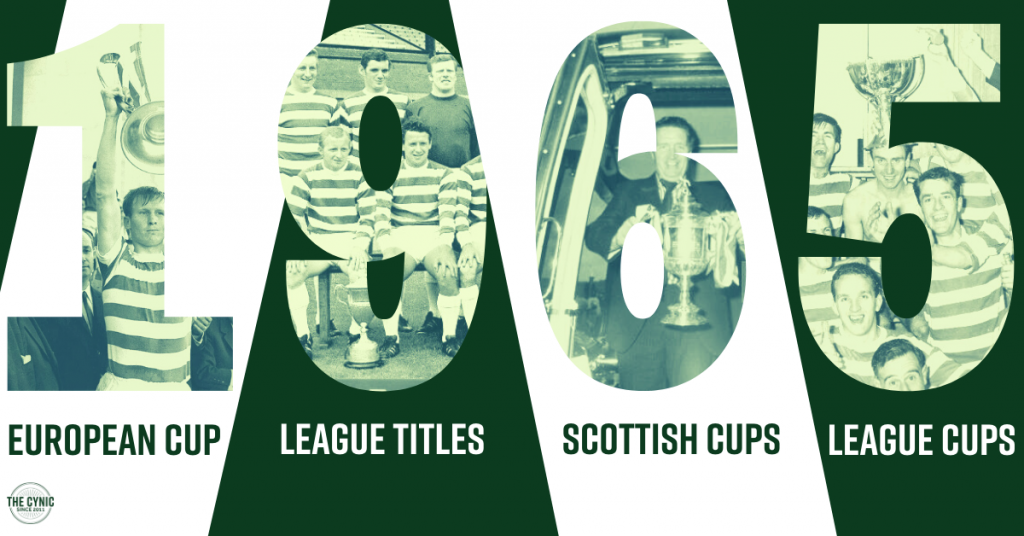
While it’s a difficult comparison to make, in terms of domestic success modern fans can relate easily to the success at that time. Stein’s men went into the 1974/75 campaign with a different mindset to this current Celtic side. Having achieved nine-in-a-row in 1973/74, the Scottish record had been set and it appeared unassailable. The historic feat, at a British level at least, remains unsurpassed. It almost seems a little cruel to class the subsequent campaign as a failure, however given Stein’s standards, the league campaign can be filed away as such.
The Evening Times of 29 April 1974 published just after the ninth title had been secured, credited Scot Bill Shankly with the now common adage “The league is a marathon, not a sprint” and as such Celtic required stamina as well as skill to be so consistently successful. The article continued ‘No one now can be in any doubt that Celtic have a lion’s share of both. But are they ever going to stop running?’
In theory, the celebrations had to be a little muted amid a run of four games in six days with a Scottish Cup Final still to navigate. Some of the players, as well as Jock Stein himself, would also have the 1974 World Cup in West Germany to consider.
After success in the Scottish Cup Final and Scotland’s relatively positive World Cup, the 1974/75 season saw the illustrious names of Jimmy Johnstone, Billy McNeill and Bobby Lennox returning. Added to that was the younger generation. That incredible ‘Quality Street Gang’ era of talents including Kenny Dalglish, Danny McGrain and Pat McCluskey coming into their prime. The heroes of Lisbon, each of them now rightly revered and elevated to the legendary status which is never quite afforded to players until they have hung up their boots, had steadily dissipated, with only a few remaining for the 1974/75 campaign.
Davie Hay’s departure to Chelsea after the World Cup would undoubtedly have a severe impact on the side. Hay was lauded as an incredibly talented midfielder and a future captain in waiting. It is worth remembering though that Stein has successfully managed the departures of the 1967 team whilst maintaining domestic hegemony and further attempts at European glory.
The early success in the short-lived Drybrough Cup against Rangers in the competition’s final on 3 August 1974, albeit on penalties, gave some comfort that normal service would continue.
Celtic would lose only one league match before the new year. A home defeat to Rangers on September 14 – their first win in the East End since 1968 – was difficult enough to swallow but brought strife, with the versatile George Connelly adamant that his time playing professional football was over.
‘I am definitely not going back. I just want away from it all…It’s not playing football; it’s the limelight, the star treatment, which has made me sick and tired of the whole thing.’
George Connelly as quoted by Evening Times, September 1974
Time has afforded more empathy for Connelly. Newspaper articles at the time tended to mention his comfortable home and weekly salary in that loaded prose which is as familiar as it is outdated. He would report back to Celtic Park for training in November 1974 and featured until again dropping out once again in April 1975. Connelly had also previously missed a trip to Switzerland with the national side.
The incredibly talented, arguably most gifted of the Quality Street Gang, was left out of the squad for a trip to East-End Park as a result of his April 1975 absence and Joe Hamilton of the Glasgow Herald described his omission as ‘another sad episode in the life of a player who cannot come to terms with the game’. ‘The defector’ – as coldly described in the piece – would not publicly open up about his struggles with mental health and alcohol misuse until his autobiography in 2008. Stein welcomed the player back on several occasions, a fact that Connelly notes throughout his book. He would make only 15 league appearances in this season.
On the field, Stein’s high standards took an early blow in October. They were ejected from the European Cup in the first-round to Greek champions Olympiakos in what was reported as an incredible atmosphere in the ancient city. It was a sharp decline from a side who had reached the semi-final the previous year and, whilst still packed with talent, they were a far cry from that lauded Lisbon group.
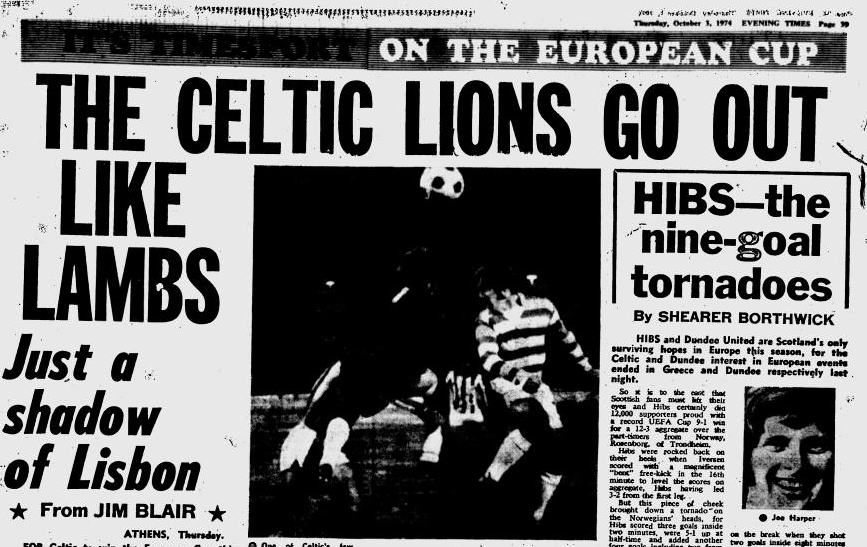
Stein was honest in his post-match assessment, if not more than a little disingenuous; ‘It would have been sooner or later…so maybe it is better that we are out now.’ Attention then turned to bringing in additional quality, with Ronnie Glavin from Partick Thistle firmly in his sights.
Domestically, the defeat in Athens did not harm Celtic’s title effort with a thereafter perfect record seeing maximum points in October as well as another trophy delivered in the League Cup Final triumph over Hibernian.
Celtic won 16 of the first 19 league matches and lost only one, drawing two. As Hogmanay approached, Celtic sat top of the table with a two-point advantage over Rangers (two points for a win at the time).
Celtic saw in 1975 by trouncing Clyde 5-1 and headed to Ibrox set for a performance as eagerly anticipated as potentially significant, with Celtic already ahead. The chant of ‘it’s magic…you know…it’s going to be ten-in-a-row’ was commonplace in the first half of the season but it wouldn’t pan out quite the same into Spring.
The result at Ibrox was a 3-0 defeat and reads like a thrashing but match reports tell otherwise, a performance that could easily have been a mid-1990’s Celtic showing. Post-match Jock Stein said ‘…we created so many openings, and then were careless in front of goal. We didn’t go about things in the right way…and carelessness cost us dear [sic].’ Ian Archer writing in the Glasgow Herald felt the loss still gave little away; ‘the latest evidence leaves the mind confused. Rangers won – but so could have Celtic.’
Whilst journalists felt the race would go down to the wire, this proved not to be the case. After the defeat at Ibrox, Celtic would win only four of the remaining 14 matches of the season. They would draw three and lost a further seven matches. Despite a strong domestic league, Stein had never had the ignominy of losing three league games in a row but did just that in ten days in March with losses to Aberdeen, Dundee United and Airdrieonians. Alan Davidson writing in the Evening Times described the Airdrieonians defeat as ‘a resounding and emphatic ten count on their league championship chances’.
The boxing analogy proved correct with Celtic finishing third and trailing league winners Rangers by 11 points. Billy McNeill’s final year in the Hoops wouldn’t end with a league medal but did end with a Scottish Cup triumph. Success over Airdrie gave Caesar a medal in his 832nd, and final, appearance. He would add handsomely to his collection as a manager only a few years later. His team-mate and friend Jimmy Johnstone did not take part in the final and would continue his career elsewhere in the following campaign.
It’s perhaps a little naive and coincidental to try and find parallels between the distinctly different Celtic sides that have achieved nine consecutive titles. The sport itself is immeasurably different now than it was then however there is a little of the romantic (for romantic, see naive)– that is drawn to the parallels.
It is both the expectation and hope that it is the differences that win out at the end of this domestic campaign, not those parallels. Having matched the feat of nine-consecutive titles, Neil Lennon’s Celtic side have an opportunity to succeed were two very different sides before failed. It is an opportunity that on average only comes round every 43 years. For all the hyperbole, analysis and objective truths; the fan in every one of us might just hope that ‘third-time lucky’ is enough.

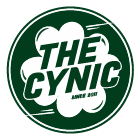
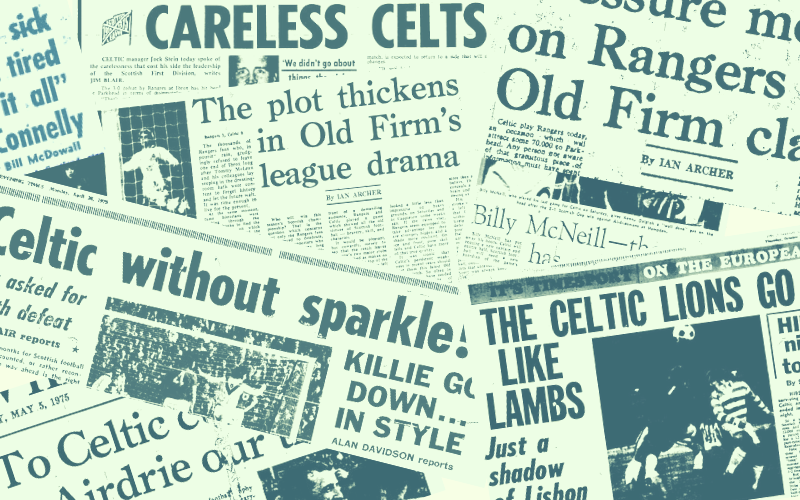

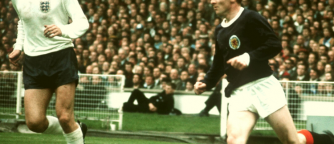
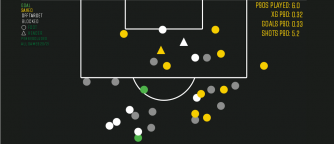

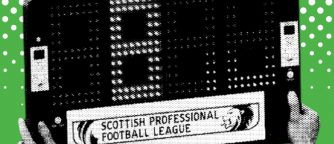


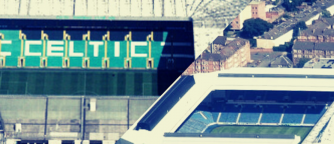
Great article Alan, did the celtic team happen to go to dubai after New year’s,…. What a collapse that was… Like you said 3rd time lucky 🍀
‘Seamill, Dubai – it’s all the same’ has a ring to it.
Brilliant article Allan. I have had it in the back of my mind to go and look up this season for a while now and never got round to doing it – this article has answered all my questions!
Excited for the future of the website if this will be what can expect!
Appreciate the feedback Paul, glad you enjoyed.
Interesting article Alan.
Didn’t appreciate how much Celtic fell away after Christmas. Keep up the good work at the cynic. 👍🍀🍀
All the best Jason Starrs
Great article. Hard to not draw parallels with the early European loss (even if we are still in Europe). And the player leaving football for what later came out as suffering from mental health issues. Very enjoyable to read about this period of Celtic’s history haven’t not being able to have lived through it.
Good article… let’s hope its 3rd time lucky for The Bhoys HH
First class Allan.. I can vaguely remember that season they went for the 10 I would be 12… I’m sure it will be a better outcome second time round
Alan, listen to Celtic Underground’s discussion of that season in their 9IAR podcast series. Guys who were watching it unfold in front of their eyes with some warnings for today’s drive for 10. Insightful and really quite emotional.
Superb piece, Alan. Researching a piece on the missed 10s & your work is a big help. Many thanks.